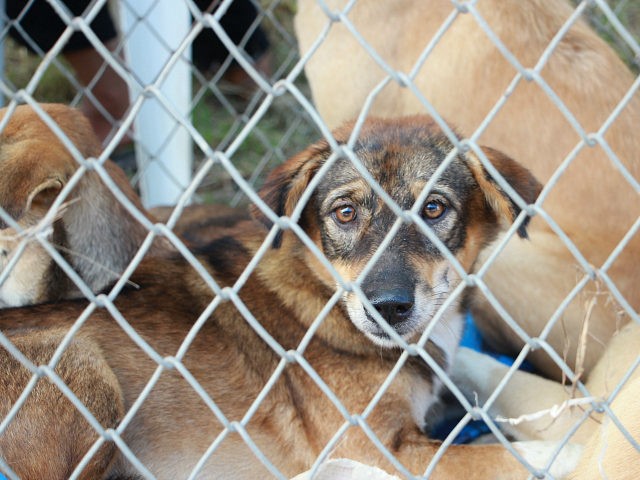People for the Ethical Treatment of Animals (PETA) received a response from the U.S. Army on Thursday to its request for assistance with working dogs and companion animals left behind in Afghanistan.
An Army spokesperson told PETA the U.S. military “did not leave any dogs in cages” at Hamid Karzai International Airport in Kabul, but also was unable to help animal rescue teams evacuate “more than 150 stray Afghan dogs” due to regulations governing evacuation flights.
The International Society for the Prevention of Cruelty to Animals (SPCAI) on Tuesday blamed the U.S. Centers for Disease Control (CDC) for enacting policies that were a “terrible impediment” to rescuing dogs from Afghanistan. SPCAI said its application for an emergency exemption from the CDC’s July 14 policy suspending the import of dogs from countries at high risk for rabies was denied, even though Congress reprimanded CDC for issuing the inflexible directive.
We are also happy to report that Bea, the sweet pup in the video, who Charlotte carried out of the airport is happy and doing well! pic.twitter.com/F5Ejm5Xfac
— SPCA International (@SPCAINT) September 2, 2021
“These dogs were not permitted on military evacuation flights due to regulations, but the Kabul Small Animal Rescue claimed to have arranged a chartered plane to rescue the animals. Unfortunately, that plane did not arrive, leaving no options to evacuate the dogs,” the Army spokesperson told PETA on Thursday.
The U.S. military decided the “only reasonable and humane course of action” was to move these dogs to a “former Afghan National Army compound on the airport grounds with appropriate supplies of food and water.”
“Working tirelessly through the night of August 29 and into the morning of August 30, dedicated U.S. Soldiers transported more than 150 dogs in crates down the airfield to the compound—no easy task under the best of circumstances, but particularly challenging during the hazardous final stages of our withdrawal,” the response sent to PETA explained.
The U.S. Army sheds light on allegations that nearly 150 dogs were left behind in Afghanistan.
Thank you to everyone who took action! https://t.co/KItAazFwww
— PETA (@peta) September 2, 2021
The Army spokesperson said Charlotte Maxwell-Jones, owner and operator of Kabul Small Animal Rescue (KSAR), was notified that the dogs had been moved to the “relatively self-contained” former Afghan military compound and released.
The statement said Maxwell-Jones “acknowledged that our forces had exercised the only option available at that point,” and “indicated that she intended to return to the airport in the coming days to gather the dogs and get them on a charter plane to forever homes outside of Afghanistan.”
“It’s our sincere hope that she is successful in that effort,” the Army spokesperson concluded.
PETA said KSAR confirmed most of the details in the Army statement, but added that its staff “was trying to get animals out and needed more time, which was not granted.”
UPDATE #KABUL, #AFGHANISTAN: Please bear with us as we investigate & corroborate the information from the ground in order to share it with you. It is a sensitive situation & we don’t yet have further updates to share. We are working tirelessly on this & appreciate your patience. pic.twitter.com/Tjd7gatUWy
— Network For Animals 🐾 (@Network4Animals) September 1, 2021
PETA said KSAR “remains committed to the welfare and safety of the many dogs in its charge and is continuing to work on the situation.”
Concern for the dogs left behind in Afghanistan peaked when photos were posted online showing piles of empty animal cages and scattered supplies of food and water, which gave the appearance of animals callously abandoned rather than carefully relocated to a relatively secure facility, as the Army described above.
Taliban commanders said on Wednesday they are hunting for released dogs, indicating they believe some of the animals at large in Kabul are not strays, but trained service dogs with skills that could be used by the extremist regime.

COMMENTS
Please let us know if you're having issues with commenting.